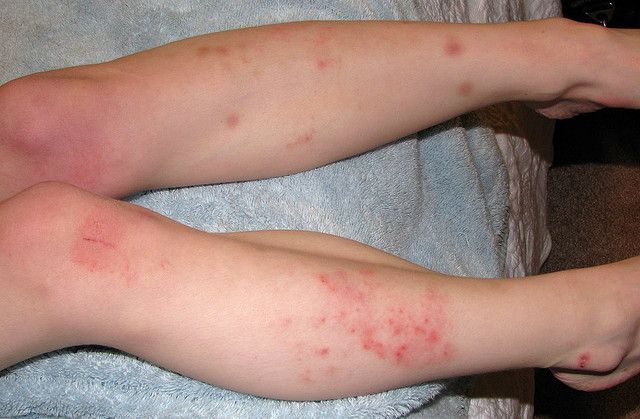Severe Eczema Effectively Treated With Xeljanz (Tofacitinib), An Arthritis Drug, In Small Study

A small scale study finds a rheumatoid arthritis drug, Xeljanz (tofacitinib), reduced itch, improved sleep, and diminished redness and thickening of the skin in patients with moderate to severe eczema. The same drug, say the Yale School of Medicine researchers, also effectively treated two other skin conditions in recent studies.
Eczema (atopic dermatitis) is a term for several types of chronic skin conditions. Though not dangerous, it causes red, swollen skin, and severe itching. There is no cure for eczema, and standard treatments, including steroid creams and oral medicines, prove ineffective for those with severe symptoms. Eczema often impacts patients’ quality of life, disrupting their sleep while causing embarrassment.
The cause is unknown, but patients generally have a family history of the condition or allergies. Scientists believe an underlying genetic condition and environmental factors result in eczema. Over 30 million Americans, the National Eczema Association reports, suffer from this skin condition. Meanwhile, the World Allergy Organization estimates two to five percent of children and 10 percent of young adults are affected.
Many people, then, would welcome an effective treatment.
For the current study, a research team led by Dr. Brett King, assistant professor of dermatology, evaluated the efficacy of tofacitinib citrate when treating patients with moderate to severe eczema. King has served on an advisory board for Pfizer, which makes Xeljanz, a brand version of this drug. In a previous study, King demonstrated the arthritis drug effectively regrew hair in patients with alopecia areata, an autoimmune disease causing hair loss. Another study of the drug showed successful treatment of a patient with vitiligo, a condition that causes the loss of skin color in irregular blotches.
Based on these studies and new biological models of eczema, King and his colleagues hypothesized tofacitinib citrate could interrupt the immune response resulting in eczema. For the study, the research team worked with six patients with moderate to severe eczema. All had previously tried conventional therapies without success.
However, the arthritis drug led to dramatic improvement for the lucky six. During the study period, all six patients experienced a reduction in itch, improved sleep, and lessening in the redness and thickness of their skin.
“I'm hopeful we are entering a whole new era in treatment,” King stated in a press release. He and his colleagues say more research is needed to confirm these results while also testing for safety.
Source: Levy LL, Urban J, King BA. Treatment of recalcitrant atopic dermatitis with the oral Janus kinase inhibitor tofacitinib citrate. Journal of the American Academy of Dermatology. 2015.
Published by Medicaldaily.com



























